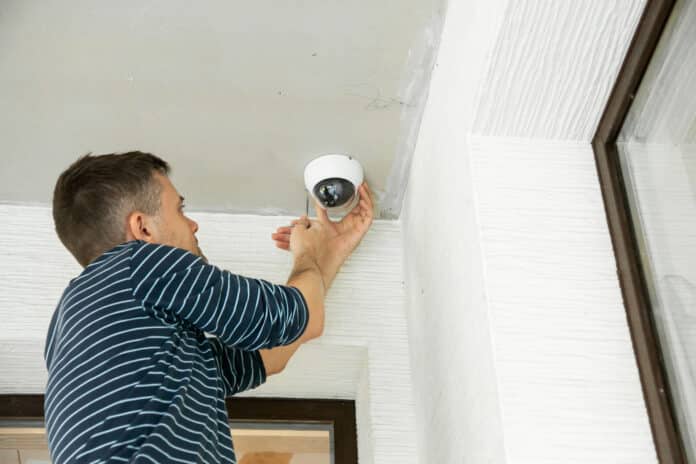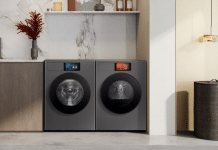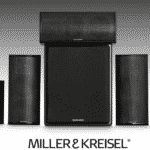
If you’re considering installing a smart home security system, you may be wondering whether it’s better to do it yourself or hire a professional. Both options have their advantages and disadvantages, and the right choice for you will depend on your level of technical expertise, budget, and desired level of convenience. In this article, we’ll explore the differences between DIY and professional installation, and help you determine which option is best for your smart home security system.
A smart home security system is a modern security system that uses internet-connected devices to monitor and protect a home. These systems often include a combination of sensors, cameras, and alarms that can be controlled and accessed remotely through a smartphone app or web interface. Smart home security systems allow homeowners to monitor their homes and receive alerts if any unusual activity is detected, giving them peace of mind and an added level of protection. They can also be integrated with other smart home devices, such as thermostats and lighting systems, to provide a more comprehensive and convenient home security solution.
Installing a security system in your home is an important measure to take to protect your family and your belongings. A security system can deter burglars and other intruders, alert you to any unusual activity, and provide a sense of peace of mind. It can also potentially lower your insurance premiums and increase the value of your home. With today’s technology, there are many options available for home security systems, ranging from simple alarms to more advanced systems that include surveillance cameras and other features. No matter what type of security system you choose, it is important to take the time to research and carefully consider your options to find the best fit for your home and your budget.

Installing a smart home security system can be a daunting task, especially if you’re not particularly tech-savvy. One option is to hire a professional to do the installation for you, but this can be expensive. Another option is to tackle the installation yourself, which can save you money and give you the satisfaction of a job well done. But before you decide which route to take, it’s important to weigh the pros and cons of both options.
DIY
One of the main advantages of installing your own smart home security system is the cost savings. Professional installation can be expensive, especially if you have a large or complex system. By doing the installation yourself, you can save hundreds or even thousands of dollars.
Another advantage of DIY installation is convenience. You don’t have to schedule an appointment with a professional and wait for them to arrive. Instead, you can work on the installation at your own pace and on your own schedule. This can be especially useful if you have a busy schedule.
DIY installation also gives you more control over the process. You can choose the exact components you want and ensure that they are installed correctly. This can be especially important if you have specific security needs or if you want to customize your system in a certain way.
However, there are also some disadvantages to DIY installation. One of the main drawbacks is the potential for mistakes. If you don’t have a lot of technical knowledge or experience, it’s easy to make mistakes that could compromise the security of your home. Additionally, if you make mistakes during the installation process, you may void the warranty on your system, which could be costly if you need to replace any components.
Overall, whether you choose DIY or professional installation for your smart home security system depends on your budget, your technical skills, and your personal preferences. If you’re comfortable with technology and are willing to invest the time and effort, DIY installation can be a cost-effective and convenient option. However, if you’re not confident in your abilities or if you have a large or complex system, it may be worth it to hire a professional to ensure that your system is installed correctly.
Professional Installation
One of the main advantages of professional installation is expertise. A professional installer has the knowledge and experience to properly install and set up your system, ensuring that it is secure and effective. This can be especially important if you have a large or complex system, or if you have specific security needs.
Another advantage of professional installation is efficiency. A professional installer can complete the installation quickly and efficiently, often in just a few hours. This can save you time and hassle, especially if you have a busy schedule or are not comfortable with technology.
Professional installation also offers the added benefit of warranties. If something goes wrong with your system, a professional installer may be able to fix it under warranty, saving you the cost of a repair. This can be especially important if you have an expensive or high-end system.

However, there are also some disadvantages to hiring a professional to install your smart home security system. The most obvious disadvantage is cost. Professional installation can be expensive, especially if you have a large or complex system. This can be a significant investment, especially if you’re on a tight budget.
Another disadvantage of professional installation is the loss of control. When you hire a professional to install your system, you are relinquishing control of the process to someone else. This can be frustrating if you have specific ideas about how you want your system to be set up or if you want to customize it in a certain way.
In conclusion, whether you choose DIY or professional installation for your smart home security system depends on a number of factors, including your budget, technical knowledge and comfort level, the complexity of the system, and the importance of warranties and maintenance. DIY installation can be a cost-effective and satisfying option for those who are comfortable with technology and are willing to invest the time and effort. However, professional installation offers the expertise and efficiency of a professional, as well as warranties and maintenance, which can provide peace of mind and save you money in the long run. Carefully considering these factors will help you make an informed decision that is right for you.















